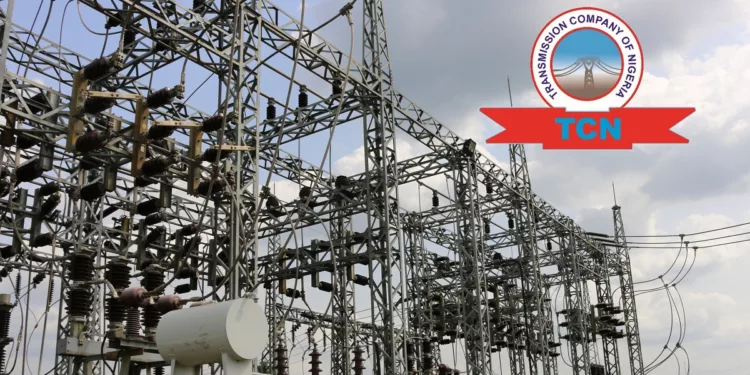Nigeria’s power sector happens to be one of the knottiest sectors of the economy, daily driving consumers and administrators to despair. Electricity in the 21st century is something that has come to be taken for granted in many parts of the world, and yet here we are in Nigeria seemingly unable to figure it out. For millions of Nigerians, understandably, all that is seen and felt is a general oppressive failure – interminable blackouts, recurring news of the electricity grid collapsing, and the steep costs of alternative fueling.
And yet, if one looks a bit more dispassionately, encouraging signs of progress can be seen here and there. One example: Two years ago, I went in search of grid collapse data in Nigeria, and found some interesting data: Nigeria had gone from 42 grid collapses (total and partial) in 2010, to 10 in 2015, and 4 each in 2020 and 2021, and 3 in 2023. In between, a couple of spikes, like 2016 that saw 28, and 2022 that had 6 (up from 4 the previous year), but on the whole, the trend has been an impressively-declining one, suggesting increasing levels of grid stability.
Recently, the Transmission Company of Nigeria (TCN) put out a statement highlighting that 2020 to date has seen 76 percent less “grid disturbances” than 2015 to 2019. This data is necessary, not for the purpose of premature or bar-lowering celebration, or for silencing public discontent, but instead for (valuable and necessary) context; for addition to the all-important debate about what direction we’re headed in, regarding our power sector.
Even as the sector remains a long way from where it should be, we should at any point in time be able to assess data to see whether we’re headed in the right direction or not. The grid disturbance data trend certainly gives cause for some optimism. I firmly believe that optimism is always needed to energize the collective search for lasting solutions. Nigeria cannot at any time afford despondency.
This increasing stability of the grid can be explained: the outcome of a series of ongoing interventions targeted at expanding grid capacity and stability. One of the more recent ones is the Presidential Power Initiative (PPI), also known as the Siemens program, a government-to-government partnership between Germany and Nigeria, with Siemens as the technical/engineering partner.
Launched just before Covid hit, the pandemic slowed it down quite a bit, necessitating a significant extension of the timeline, but the project remains well on course, with five “workstreams” in its scope: Transmission, Distribution, Network Simulation, Meter Data Management, and Training / Capacity Building. The 10 ‘mega-transformers’ and 10 mobile substations that were ordered in 2021 for the first phase of implementation have since been delivered and are being installed at various sites across the country. Minister of Power, Bayo Adelabu formally inaugurated completed installations at five sites in February 2024, and another two at the start of May.
Another point that cannot be ignored is the work going into increasing generation capacity. Very soon, the brand-new Zungeru Hydropower Plant, completed in 2023, will start delivering electricity consistently to the national grid. 700MW of power, making it the second biggest hydropower plant in the country, and the biggest single investment in generation in at least three decades. It has already been concessioned and handed over to the private sector operator that will run it for the next thirty years. 700MW will make a significant difference when it comes on-stream, joining a host of smaller plants recently completed (privately and publicly owned), like Geometric in Abia, Kashimbila in Taraba, Challawa Solar in Kano, and Gurara in Kaduna.
Much of what I’ve touched on above is focused on “infrastructure” or “engineering”– the hardware of the power sector. The towering elephant in the room however happens to lie in a different but interlinked area: the flow of money through the sector; the “economics”. This is the part that’s invisible to most people, unlike the substations and the transformers and meters and power lines, etc. And yet this flow of money is the most important element, the one needed to enable the infrastructure to deliver a consistent, sustainable, enduring flow of electricity.
And this is where Nigeria’s biggest challenges lie. The DisCos need money to run, and to pay the GenCos that supply them with electricity. The GenCos also need money to run, and to pay the suppliers of the fuel that power the generating plants – gas (thermal stations), and water (hydropower stations). To put it in the simplest possible way, the industry cannot exist in the absence of a guarantee of an unbroken flow of money from the end-users – homes, offices, industries – all the way to the suppliers of the fuels.
The Federal Government says that at the start of 2024, it was compelled to provide subsidies amounting to 90 percent of the monthly amount due to be paid by the DisCos to the GenCos. This subsidy came to over 210 billion Naira monthly, and by the end of 2024 would have added up to around 2.5 Trillion Naira, for the year. It is mind-boggling that Nigeria’s DisCos are only able to collect, on the average, 10 percent of the electricity they sell (some DisCos are definitely much more commercially efficient than others). There are various reasons of course.
– Ogunlesi writes from Abuja, Nigeria



